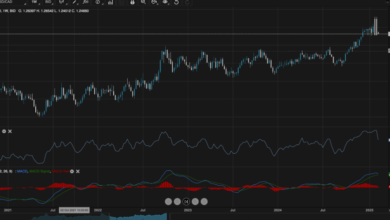
Where you live can change a lot of things in life, including how much you pay for insurance. In this article, we are going to explore how your address and surroundings can impact costs, like when you’re trying to protect your stuff. Factors like neighborhood safety, local weather, and even nearby services can all play a role in what you pay for coverage.
Some places are more expensive, while others help you save money. Let’s walk through some different ways that a home’s location affects the total cost of insurance for renters, and this article gives a few tips to make things easier.
Bad Weather or Natural Events
One big way where you live can change how much you pay is the weather. Think about it: places that often have earthquakes, floods, or big storms can be more risky. This is because when these events happen, things break or get damaged a lot. If you live somewhere that gets hit by a lot of these natural events, you might have to pay more to protect your things. That’s because the risk of needing to fix or replace them is higher.
On the other hand, if you live somewhere that doesn’t see much extreme weather, your costs might be lower. It’s safer, so there’s less chance your things will be harmed. For example, if someone lives in a city that rarely gets floods or storms, their costs might be a lot lower.
Areas With High Crime
Another thing that can change how much you pay is crime in your neighborhood. If you live in a place where there are a lot of break-ins or thefts, it might cost more to keep your things safe. The reason is simple: it’s more likely something could get stolen or broken in.
But if you live in a place where the crime rate is very low, you won’t have to worry as much about things being taken. This could help keep costs down since it’s safer for your belongings. So, where you live can really change how much you end up paying depending on how safe the area is.
City Life vs. Country Life
Living in a big city versus a smaller town or rural area can also make a difference. Big cities usually have higher prices for everything because they are busy and packed with people. There are often more risks, like fires or accidents, in places with lots of people. Also, the buildings in cities are often bigger and more complex, which might make it harder to fix things if something goes wrong.
In smaller towns or countryside areas, where there are fewer people and homes are more spread out, it’s often cheaper. There’s less risk because there’s more space, and fewer accidents or problems happen.
Nearby Fire and Police Stations
The closer you are to a fire station or police station, the safer your things can be. If something bad happens, like a fire or a robbery, the emergency workers can get to you faster. This makes your home less risky, and because of that, you might end up paying less.
For example, someone who lives just down the street from a fire station could have lower costs compared to someone who lives far away in the countryside, where help takes longer to arrive.
The Age of Your Home
Older homes can sometimes cost more to keep safe. This is because older houses might not have the same modern safety features as newer homes. Things like old wiring, pipes, or even the type of roof can make an older house more likely to have problems like fires or leaks. If you live in an area where the homes are older, you might end up paying more.
However, in places where homes are newer and have up-to-date safety systems, you could end up saving. New buildings are built to better handle issues, which means fewer problems and lower costs.
Read more: The Essential Five: Must-Have Men’s Accessories for Everyday Style
Local Rules and Laws
Did you know that the rules in your city or state can change how much you pay to protect your things? Different places have different rules that might make it more expensive or cheaper. For example, some places require people to have extra protection from certain types of risks, like earthquakes or floods, which can make costs higher.
On the other hand, some places don’t have as many rules or risks to worry about, which could help keep costs down. So, it’s important to check the local laws where you live because they might be adding to what you’re paying without you even knowing it.
Where you live plays a big role in how much you pay to protect your belongings. Factors like weather risks, crime rates, and how close you are to emergency services all impact the total cost of insurance for renters. Urban and rural areas have different price ranges, and even the age of your home or local laws can affect what you pay. But with careful planning, you can save money.




